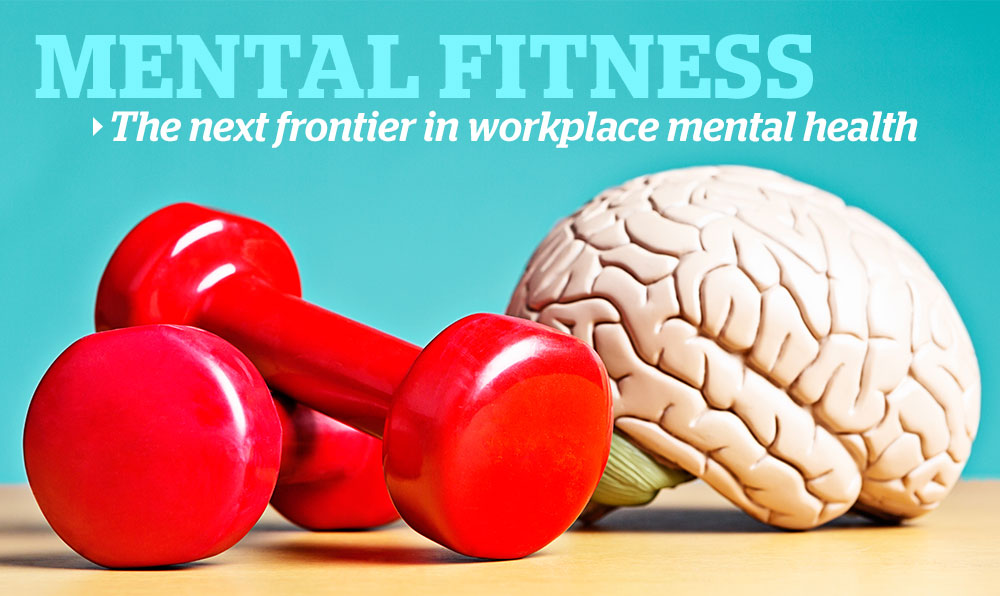

Columns/Blogs
Features
Mental Health
How to move from self-doubt to self-belief
By Bill Howatt

EDITOR’S NOTE: ‘Mental Fitness: The next frontier in workplace mental health’ is a weekly series, in partnership with Dr. Bill Howatt of Howatt HR Consulting in Ottawa. This series takes a deeper look at mental fitness — an approach to prevent mental harm and promote mental health.
How often do you stop yourself from doing things you want?
Self-doubt, a part of the human experience, can keep us humble and stop us from trying. We can recognize self-doubt by our degree of uncertainty regarding one or more aspects of our life, such as likability and confidence in work or an intimate relationship.
Imposter syndrome, where the person feels like a fraud despite having many personal accomplishments, is a common mental state directly linked to self-doubt.
Experiencing high levels of constant self-doubt in one area of life can prevent us from improving that area. In time, self-doubt can become a mental habit where a person with high levels constantly distrusts their judgement (i.e. gut) and self-worth and is inhibited from seeing any good in themselves.
Some common signs that self-doubt may be a challenge for you:
- You find it difficult to accept a complaint.
- You constantly seek reassurance.
- You have low self-esteem.
- You have difficulty giving yourself credit.
- You feel like you’re never good enough.
One challenge with self-doubt is when it makes a person powerless to act.
Some self-doubt is normal, but when it impedes self-advocating (i.e. speaking about what you want), it becomes a barrier to emotional well-being.
Psychologically Safe Workplace Awards provide employers tools, data on mental health
Moving from self-doubt to self-belief
Self-belief is accepting that one can learn to achieve their life goals. Taking a chance and trying can be more rewarding than not trying, even if we fail. Trying is not a guarantee; not trying guarantees that nothing will change.
Mental fitness, an intrapersonal practice that requires focus and intention, can build confidence to lower self-doubt.
Mental fitness is not magic; it is a way of acting and learning to influence emotions and thoughts that create pleasant feelings.
Practicing the following microskills can lower self-doubt by reprogramming one’s internal belief system to have more positive self-belief and move past the fear of trying.
There are no shortcuts; it takes practice. People learn self-doubt through repetition (i.e. saying many times, “I cannot, I am not good enough.”) Creating self-belief also takes repeating phrases like, “I want to tame this self-doubt.”
Doubt self-doubt
Self-doubt is often based on flawed logic and is situationally specific. Doubt self-doubt with a response such as, “I will never really know unless I try. What is the worst thing that can happen? If I fail, that is fine; it is much better than not trying.” Challenging limiting beliefs through testing their validity can help discover that most of what stops us is nothing more than what we believe. We can change that once we become aware of what we are doing.
Train your courage muscle
Creating a new habit takes repetition and courage. Taking small steps and tackling lower-stake fears can develop the courage to focus on what you may be able to do, not on what you cannot do. Courage can generate assertiveness to ask for what you want while accepting you may not get it. Unless you ask, you will never get it.
Build your fan base
Spend time with people who believe in you. A positive support system can remind you of your strengths that you can leverage to challenge self-doubts. Talk about your concerns and self-doubts with supporters and notice how they may highlight strengths and provide a different set of facts to consider.
Focus on purpose
Be clear on who you want to be and why. Tapping into core values can create a source of energy that can inspire you to push yourself out of your comfort zone. What we fear is often not as bad as we imagine when we remove emotion and be objective. Linking to a purpose we value more than our fear, such as being a good parent, partner, or friend, can provide energy to push through self-doubt. Holding what we value top of mind can generate confidence and purpose to act and leave self-doubt behind.
Keep a daily journal of strengths
Note your strengths to train your brain that you have strong points and accomplishments that build your confidence that you are capable and do not have to settle for what you do not want.
Ask for help if self-doubt persists
Self-doubt may be a symptom of a more complex mental health concern like anxiety, depression, or trauma that you can deal with by seeking support from a mental health professional. These professionals are trained to provide guidance and support to manage mental health and self-doubt symptoms. The critical point is that self-doubt can be curbed with the right support.
 Dr. Bill Howatt is the Ottawa-based president of Howatt HR Consulting.
Dr. Bill Howatt is the Ottawa-based president of Howatt HR Consulting.
Print this page